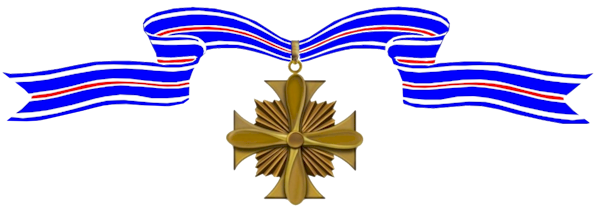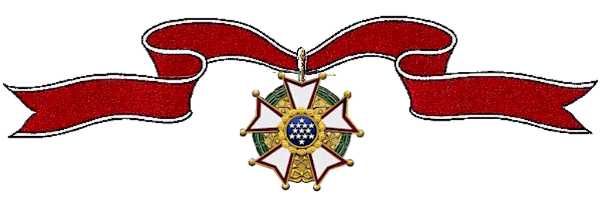The President of the United States of America takes pleasure in presenting a Third Gold Star in lieu of a Fourth Award of the Distinguished Flying Cross to Major Richard M. Baker (MCSN: 0-5444), United States Marine Corps, for extraordinary achievement while participating in aerial flight in the Solomon Islands Area from 1 June to 14 August 1943. Major Baker completed his sixtieth flight in a combat area where enemy anti-aircraft fire was expected to be effective or where enemy aircraft patrols usually occurred. His conduct throughout has distinguished him among those performing duties of the same character.

Awards Received
-

Legion of Merit
-
Legion of Merit
Service:
United States Marine CorpsRank:
ColonelDivision:
1st Marine Aircraft WingAction Date:
May 19, 1953 – March 20, 1954
Commanding General 1st Marine Aircraft Wing: Serial: 5965 (April 28, 1954)The President of the United States of America takes pleasure in presenting the Legion of Merit with Combat “V” to Colonel Richard M. Baker (MCSN: 0-5444), United States Marine Corps, for exceptionally meritorious conduct in the performance of outstanding services to the Government of the United States while serving with the FIRST Marine Aircraft Wing in Korea and Japan from 19 May 1953 to 20 March 1954. As Assistant Chief of Staff for logistics from 19 May 1953 to 4 September 1953, Colonel Baker demonstrated superior ability and competence by promulgating plans and directives that materially enhanced the effectiveness of the logistics section. Through his meticulous attention to the many details of his assignment, vital supplies and the replenishment of equipment and material were handled in an expeditious and efficient manner. From the period 5 September 1953 to 25 October 1953 he served as Executive Officer of a Marine aircraft group at a forward air base where he rendered valuable assistance to the group commander in the establishment of operational plans and policies. Colonel Baker one more demonstrated his versatility and reliability when he served as Commanding Officer of a Marine Wing service group from 26 October 1953 to 31 December 1953. Charged with the responsibility of rendering logistical support to forward tactical units, the Marine wing service group, adequately and efficiently performed its assigned function, primarily due to the capable leadership of Colonel Baker. From the period 13 January 1954 to 20 March 1954 he once again demonstrated his outstanding executive and administrative ability as Executive Officer of a Marine jet fighter group in Japan. Throughout the entire period cited, Colonel Baker has rendered valuable assistance to the wing commander and has been a source of inspiration to all with whom he came in contact. His exemplary conduct, inspirational leadership and selfless devotion to duty throughout has reflected great credit upon himself and were in keeping with the highest traditions of the United States Naval Service. (Colonel Baker is authorized to wear the Combat “V”.)

